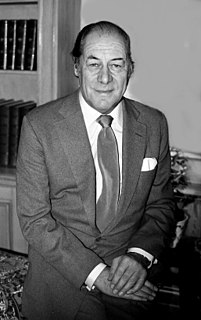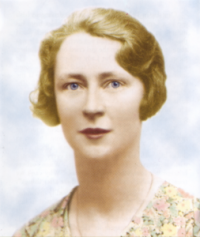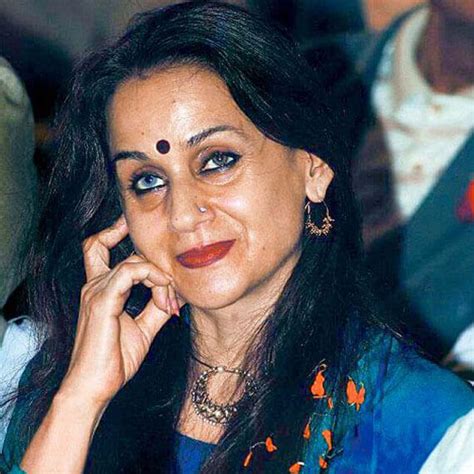A Quote by Gunnar Myrdal
The ordinary American is the opposite of a cynic. He is on the average more of a believer and a defender of the faith in humanity than the rest of the Occidentals. It is a relatively important matter to him to be true to his own ideals and to carry them out in actual life.
Related Quotes
The ordinary man is living a very abnormal life, because his values are upside down. Money is more important than meditation; logic is more important than love; mind is more important than heart; power over others is more important than power over one's own being. Mundane things are more important than finding some treasures which death cannot destroy.
For though ours is a godless age, it is the very opposite of irreligious. The true believer is everywhere on the march, and both by converting and antagonizing he is shaping the world in his own image. And whether we are to line up with him or against him, it is well that we should know all we can concerning his nature and potentialities.
According to the Tax Foundation, the average American worker works 127 days of the year just to pay his taxes. That means that government owns 36 percent of the average American's output-which is more than feudal serfs owed the robber barons. That 36 percent is more than the average American spends on food, clothing and housing. In other words, if it were not for taxes, the average American's living standard would at least double.
Higgins: I'm an ordinary man, who desires nothing more than just an ordinary chance, to live exactly as he likes, and do precisely what he wants. An average man am I, of no eccentric whim, Who likes to live his life, free of strife Doing whatever he thinks is best for him, Well, just an ordinary man
I have great faith in 'ordinary parents.' Who has a child's welfare more at heart than his ordinary parent? It's been my experience that when parents are given the skills to be more helpful, not only are they able to use these skills, but they infuse them with a warmth and a style that is uniquely their own.
Faith by its very nature must be tried, and the real trial of faith is not that we find it difficult to trust God, but that God's character has to be cleared in our own minds. Faith in its actual working out has to go through spells of unsyllabled isolation. Never confound the trial of faith with the ordinary discipline of life. Much that we call the trial of faith is the inevitable result of being alive.
The skeptic says that the believer has lost his own mind under God. On the contrary, it is the people who follow God who are most like his children, who willingly and consciously walk in his will; but those who oppose him oppose him vainly and at their own expense, and, figuratively, seem to be more like his tools. They don't diminish his glory, but instead he still manages to use them in ways of unconsciously carrying out his will.
The believer is sensible of his infirmities, for it is supposed that he is wrestling under them. He sees, he feels, that he is not man enough for his work; that his own hands are not sufficient for him, nor his own back for his burden; this is what drives him out of himself to the grace that is in Christ Jesus. And thus he lies open to the help of the Spirit, while proud nature in unbelievers is left helpless.
The prince's official job description as king will be 'defender of the faith,' which currently means the state-financed absurdity of the Anglican Church, but he has more than once said publicly that he wants to be anointed as defender of all faiths—another indication of the amazing conceit he has developed in six decades of performing the only job allowed him by the hereditary principle: that of waiting for his mother to expire.
My faith in Christ is central to my life. My conversion from a pessimistic atheist lost in a world I didn't understand, to an optimistic believer in a universe created and sustained by a loving God is crucial to me. But following Christ does not mean following His followers. Christ is infinitely more important than Christianity and always will be, no matter what Christianity is, has been, or might become.
Each morning at Holy Mass, the Bread of Life will help the body as well as the soul, if we have faith. If we but touch the hem of His garment...and how much more have we than that! We can find Him, at every moment, on the altar. Be with Him there. Better than all books! Thank the Trinity over and over again for this Gift. Rest in His presence, and my guardian angel will adore Him for me. Silence.
To blindly trust government is to automatically vest it with excessive power. To distrust government is simply to trust humanity - to trust in the ability of average people to peacefully, productively coexist without some official policing their every move. The State is merely another human institution - less creative than Microsoft, less reliable than Federal Express, less responsible than the average farmer husbanding his land, and less prudent than the average citizen spending his own paycheck.




































